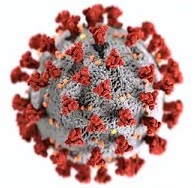 Data on racial disparities in COVID-19 infections and fatalities are shocking. The figures are changing day-to-day. But recent reports have noted that:
Data on racial disparities in COVID-19 infections and fatalities are shocking. The figures are changing day-to-day. But recent reports have noted that:
* According to the Centers for Disease Control and Prevention, Blacks make up 13 percent of the U.S. population but over 33 percent of the patients admitted to hospitals with the COVID-19 virus.
* In Michigan, 14 percent of the population is Black but 40 percent of the deaths related to COVID-19.
* In Milwaukee County in Wisconsin, Blacks make up 25 percent of the population but 75 percent of the deaths from the virus.
* In Chicago about a third of the population is Black, but more than 70 percent of those who have died from the virus are Black.
* In Louisiana, Blacks are 70 percent of the patients who have died from COVID-19 are Black. African Americans make up 33 percent of the state’s population.
Anthony Fauci, director of the National Institute for Allergy and Infectious Diseases, stated that Black Americans are not more susceptible to the virus but he acknowledged that African Americans have a greater proportion of the underlying conditions that heighten their risk for serious COVID-19 illness.
“We are not going to solve the issues of health disparities this month or next month,” Dr. Fauci said. “This is something we should commit ourselves for years to do. But what we can do now, today, is to prevent people who are put at higher risk, because of the demographic group, from getting into a situation which is much more deleterious than the general population. We want to double down and say to the young people, to the elderly people in that community, to please try as best as you can to protect yourself, if you’re a younger person, and to please protect the people who are susceptible.”













The Black community is a close community, many of whom lack the necessary resources to isolate themselves in situations such as Covid-19 or any other urgent health issue of this sort.
Many families are blended, thus sharing living space, household items, personal items and more a lack of personal space and transportation. Imagine for a moment day-work that pays less than the demands of the daily cost of living. Working a second job to pay most of the bills, feed your family and other under-employed relatives living in the home is real. A situation such as this brings about an unusual amount of stress which sometimes is reflected in abuse.
There are a number of unwanted lessons to be learned before this puzzle is complete.